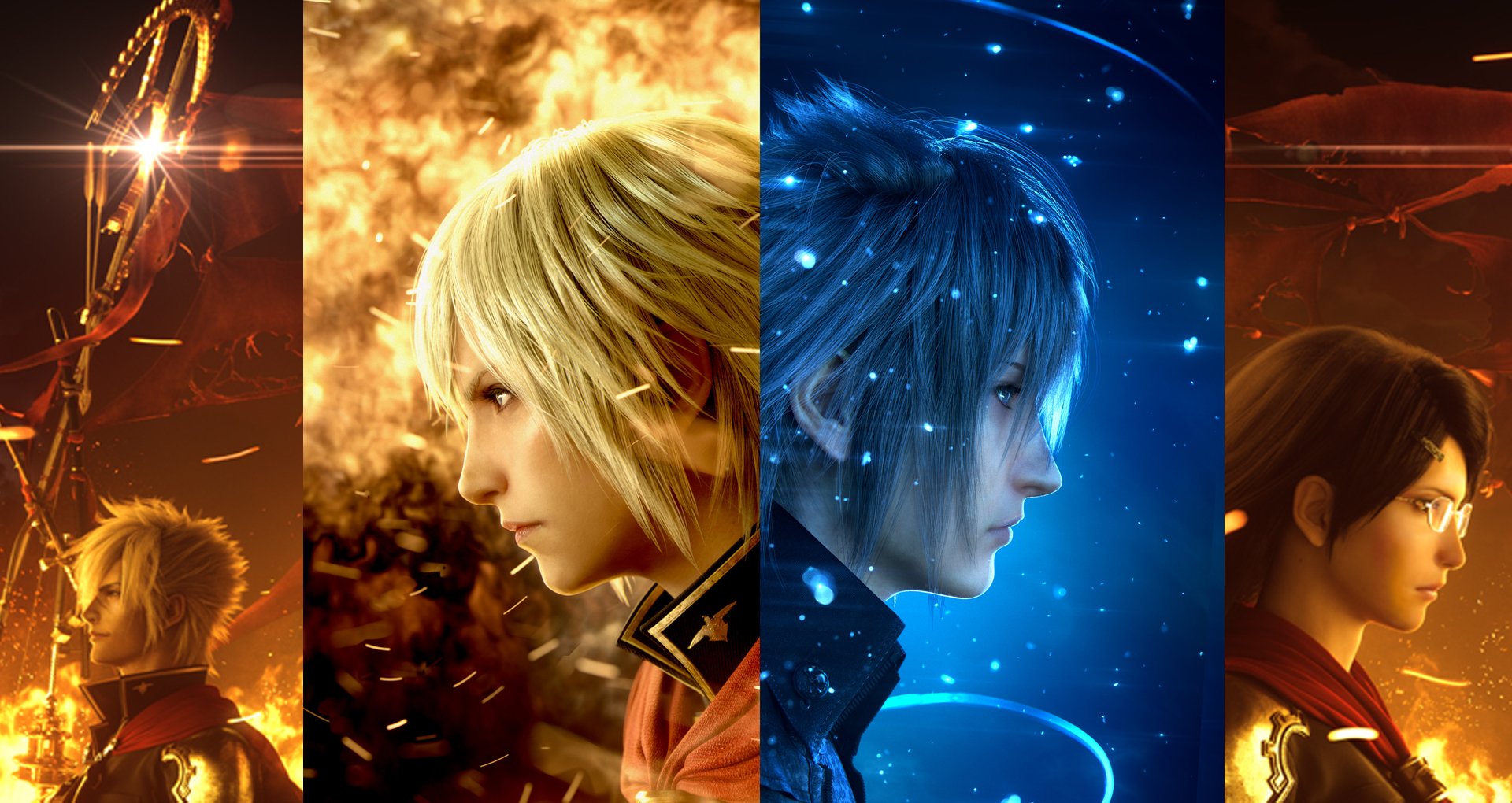GamesRadar+ Verdict
Final Fantasy Type-0 may have started life as a PSP game, but its mysterious world and fast-paced combat are still an exciting mix. Shame about the voice acting and interface, though.
Pros
- +
Interesting setting and plot
- +
High-speed combat is fun to master
- +
Fun variety of side activities
Cons
- -
Flat English voice acting
- -
Clunky spell casting
- -
Twitchy camera and terrible interface
Why you can trust GamesRadar+
A young soldier and his beloved mount lay dying, bloody and battered, on a battlefield. Thousands of his countrymen have been slaughtered around him as a high-tech totalitarian state invades his peaceful homeland. His solitude is complete, because everyone who loved him will forget him when he dies. Still, his passing causes ripples that will shake the very foundations of the world.
Intrigued? Welcome to Final Fantasy Type-0, an action RPG set in the mysterious world of Orience, where powerful sentient crystals rule over humanity and erase the painful memories of those who have passed. It's a fascinating setting that drew me in with a gripping war story, raising questions about mortality and memory. At its center is Class Zero, a group of fourteen elite army cadets who are tasked with turning the tide of battle against the invading Militesi Empire. Along with high-stakes combat missions, these young comrades face dark mysteries, political intrigue, and interpersonal drama that, although doled out slowly, make a story worth experiencing.
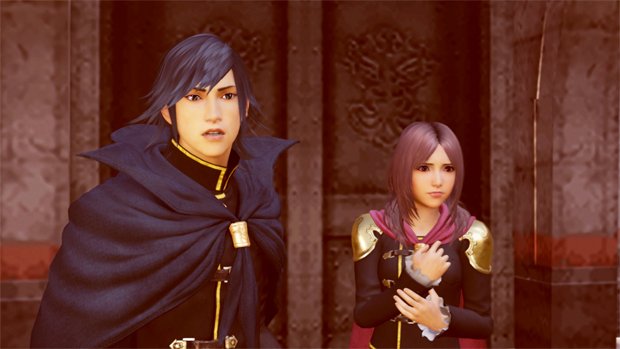
Fitting with its military theme, Type-0 is a highly structured experience. The action is split between combat missions and “free time,” during which our teenage heroes can gear up and prepare for the next mission. Combat missions are brief and linear but nicely varied, with goals ranging from liberating towns to sabotaging enemy factories. Free time offers a lot of gameplay choices but is limited by a time management system. It’s a different kind of overall experience than we usually see from Final Fantasy, but it only helps to reinforce the military theme of the game.
This being a war story, combat is the bloody, beating heart of Type-0. Your party is composed of three cadets at a time, one under your direct control and two AI partners who largely support your actions. You can swap between the three any time, and anybody who falls can be replaced by a character in reserve. Later on, you’ll get the ability to sacrifice a comrade in order to summon and control a giant, powerful beast like the firey Ifrit or frosty Shiva. Don’t worry, they aren’t gone for good, just the rest of the mission. It’s usually worth it for the chance to stomp around and wreck things.
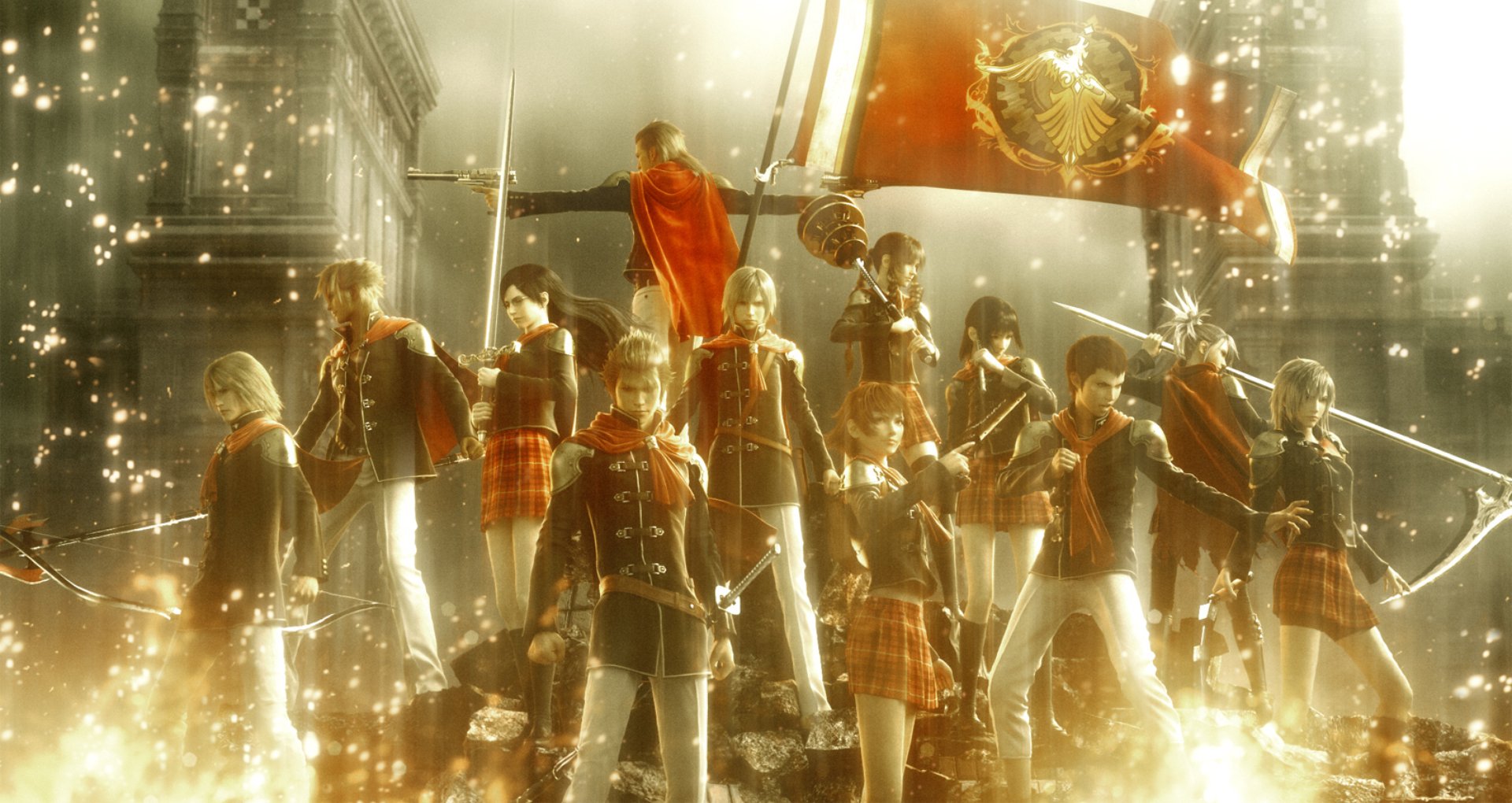
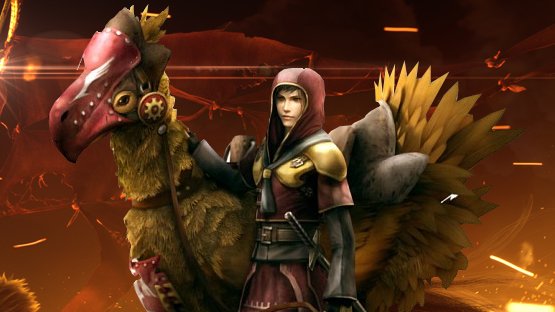
Final Fantasy's iconic giant yellow birds, the chocobos, make a grand appearance in Type-0. They can be captured, tamed, and ridden around Orience. They even serve as battle mounts in certain strategic fights. Chocobo fans will be pleased to know that they can even breed the birds via a game-spanning side quest. If you ever see an alternate colored chocobo on your journeys, high-tail it after the bird. You'll catch a rare mount that is especially strong, fast, or agile. If you're a real birdbrain, you could even hatch a ninja chocobo on your ranch. Yes, that's right. A ninja chocobo.
Unlike most Final Fantasy games, Type-0's combat is fully real-time. It uses a simple combo system supported by special attacks and a great deal of dodging. Fights are quite fast-paced and a bit overwhelming at first (especially with a rather twitchy camera to contend with), but with some practice, there's a great rush in slipping around the enemy, dodging its attacks, and using good timing to kill it in one shot. Each cadet has a unique weapon and combat style, and it's fun to try to master them all.
Type-0 doesn't shy away from presenting a challenge, so you'll need to be ready and willing to repeat some missions if you're not good or strong enough to beat them the first time through. With enough patience and practice, it feels quite satisfying to overcome these obstacles - especially when they're awesome-looking giant enemy robots.
Not all failed battles can be blamed on a lack of skill or levels, though. Square-Enix hasn’t quite nailed a few important aspects of action combat, particularly when it comes to activating spells and special activities. To heal or use a powerful ability you'll have to stop moving, wait for the interface to show that the ability is available, then stand and hold down the button until your action charges up. That just doesn't mesh with the need to stay as mobile as possible so that you're not hit and interrupted. It's frustrating, especially during a crisis or on the rare occasion that your party members bug out and stand around picking their noses instead of fighting or healing. The core combat experience is good enough that it's worth putting up with these issues, but it takes a bit of time and dedication to get to that place of acceptance.
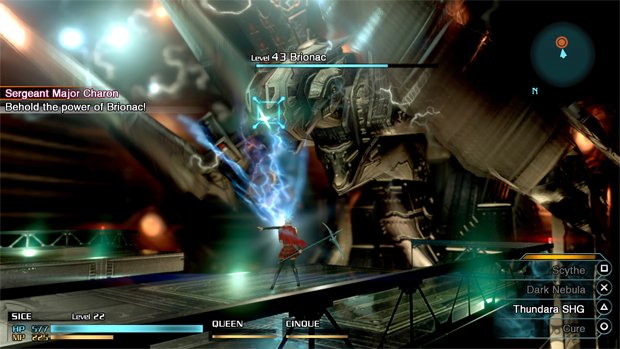
During the free time between missions, our heroes have a chance to train, equip themselves, do side quests, and get to know each other. Every major action takes time, so it's up to you to decide what's most important to get done before the next mission starts. Rather than feeling restrictive, this time management system enhances the feeling that you're making important choices. You can grind up your party if you need levels, concentrate on your social life in order to make important alliances, or even advance time directly to the next mission day if you're feeling frisky. There's a nice variety of things to do, and your opportunities gradually expand as you take back more of your homeland, making for a good synergy between story and gameplay.
As you do side quests and converse with your mates, you’ll notice that the ensemble cast of teenagers isn't quite as interesting as the story that surrounds them, despite having striking and diverse personalities. Much of the blame can be placed on the painfully flat English voice acting that afflicts almost every character in the game. It sounds like the actors were given scattered lines to read, devoid of all context. Awkward pauses in all the wrong places make it even worse. When I switched over to the Japanese voice track I was able to hear the proper level of passion and expression from the characters, but it's a shame not to have that experience in my own language.
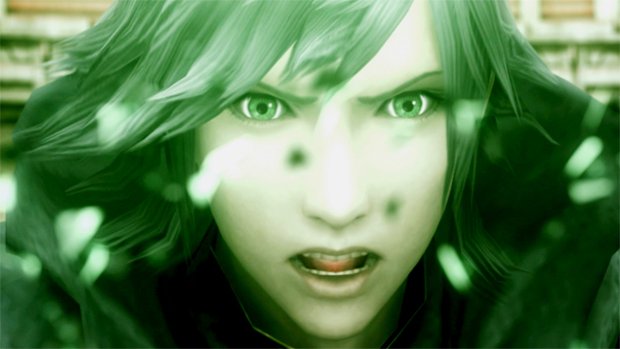
Free time is when you not only dig into smaller character stories, but also character advancement and customization. Sadly, this is where Type-0's worst quality shows itself. The out-of-combat interface is one of the worst I've seen in years, with various mind-bogglingly outdated and inconvenient features. Why don't side quest descriptions remind me where to turn in the quest when I'm done? Why do I have to go to two separate menu screens to put together my three-person party? Why, oh why, doesn't the shop interface tell me if a weapon is an upgrade or downgrade? The character portraits are right there! All they needed was a little up or down arrow on them. One or two of these annoyances are acceptable in a complex RPG, but so many of them are piled up here that they really drag the game down.
While those interface problems and other hiccups in quality drove me crazy sometimes, the big picture is what sticks with me in the end. It's images like that lonely dying soldier that I’ll remember, and the massive clashes between giant robots and spell-slinging soldiers. It's the experience of creeping through a foggy sewer to sabotage enemy equipment, or taking out a giant cigar-chomping commander with a well-timed whip crack. Type-0 has warts, and some of them are pretty gnarly, but it's something well worth experiencing nonetheless.
This game was reviewed on PS4.
More info
| Genre | Role Playing |
| Description | With a stand-alone story that shares the same mythos as FFXIII, Type-0 (formerly Agito) has a battle system similar to that of Crisis Core: Final Fantasy VII. |
| Franchise name | Final Fantasy |
| UK franchise name | Final Fantasy |
| Platform | "PS4","Xbox One" |
| US censor rating | "Mature","Mature" |
| UK censor rating | "","" |
| Alternative names | "Final Fantasy Agito XIII" |
| Release date | 1 January 1970 (US), 1 January 1970 (UK) |
